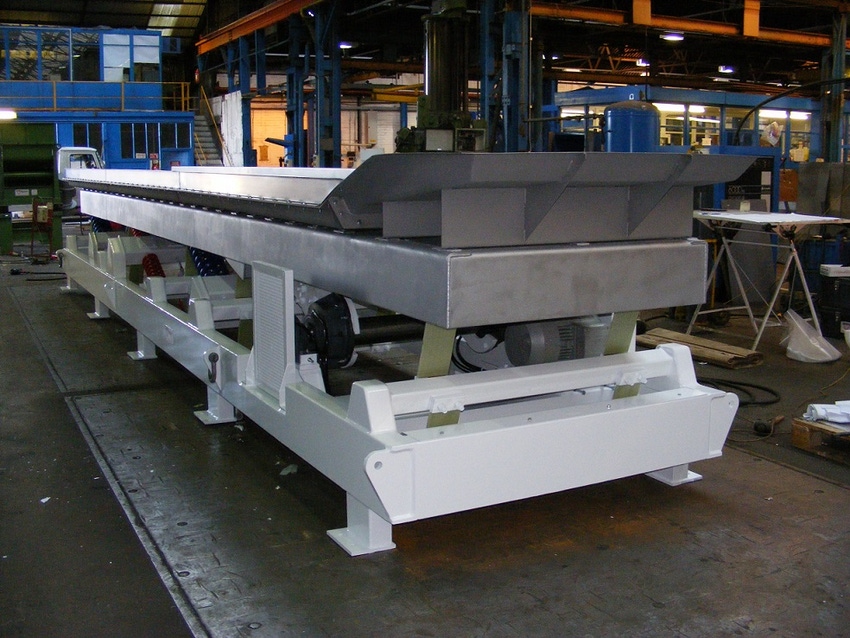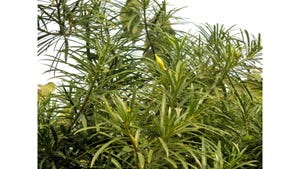12 Considerations When Purchasing Processing Equipment
December 18, 2018

Purchasing new equipment for your bulk processing operation can be stressful. It is hard to know exactly how your material will react to the new process. Visions of clumping, blockages, and poor material flow may be dancing in your head. Put your worries at ease! There are steps that you can take to ensure that when you receive your new conveyor or feeder you will not be surprised or disappointed.
The important first step you can take is to confer with your manufacturer about their testing process. A responsible manufacturer will always have a testing process in place to ensure their equipment will adequately suit your process and material requirements.
Once the testing process is determined it is imperative to confirm that the testing process takes the following into account.
Design Capacity
When discussing the parameters of your project with your manufacturer, be sure to define the design capacity. Providing your expectations at the beginning of this process will help both parties define a mutual goal in the testing process and provide results confirming the feasibility of your expectations when using their equipment.
Moisture Content
The moisture content of your material can affect its flow. As the moisture content increases so will the cohesive strength which may lead to blockages or flowability issues.
Cohesive Strength
The cohesive strength of your material also affects material flow. It may indicate the tendency to form lumps that could require breaking.
Ambient Temperature
The ambient temperature of your facility can affect the moisture content of your material. If your product is cooler than the ambient temperature you may experience an increase in moisture content and cohesive strength resulting in a flowability challenge.
Where Will the Unit Be Located?
Be sure to consider any change in location. Will the unit run through two different rooms? Will the unit start outdoors and end inside the facility? If the unit is not located in one controlled area the temperature may change along the length of the unit and the change in temperature should be considered in the design.
Humidity
The moisture content of the product may be affected by the humidity of your environment. It is always best practice to provide more information to your supplier.
Product Temperature
Product temperature is key to understanding the moisture content of your final product, but it may also take part in a key function of your equipment. The manufacturer will need to take the temperature of approach and change for the end environment as well as any temperature changes that the process calls for. You may choose to cool or heat your material as it is being conveyed which will also be a key factor in your equipment’s design. A hot dry solid may convey more slowly than at ambient temperature.
Incline or Decline
Limitations may be application specific and affect the conveying speed and conveyor size requirements.
Loose Bulk Density
Material weight per unit volume.
Particle Size Distribution (screen analysis)
Particle size can have a significant impact on the flowability of the material. The particle size distribution should be determined by the manufacturer during testing.
Dusting
Dust generation may be an issue at transfer points. In such instances, the manufacturer may recommend the incorporation of hoods or enclosures.
Personnel Safety
Provide your manufacturer with a list of your safety needs. Explaining how the equipment will be used and the locations where personnel may be stationed around the unit will help the manufacturer understand and employ the proper safety specifications.
It may seem like a lot of information to include for a material test, however, providing the manufacturer with all pertinent information will save you time and money when the unit is engineered and installed. Always ask your manufacturer if there is other relevant information that will improve the testing accuracy of your specific materials.
Oscar Mathis is technical director, General Kinematics. General Kinematics provides vibratory equipment, rotary equipment, and process systems to leading manufacturing and material processing organizations throughout the world. For more information, call 815-444-3521 www.generalkinematics.com.
For related articles, news, and equipment reviews, visit our Feeders Equipment Zone
Click here for a List of Feeder Manufacturers
You May Also Like

